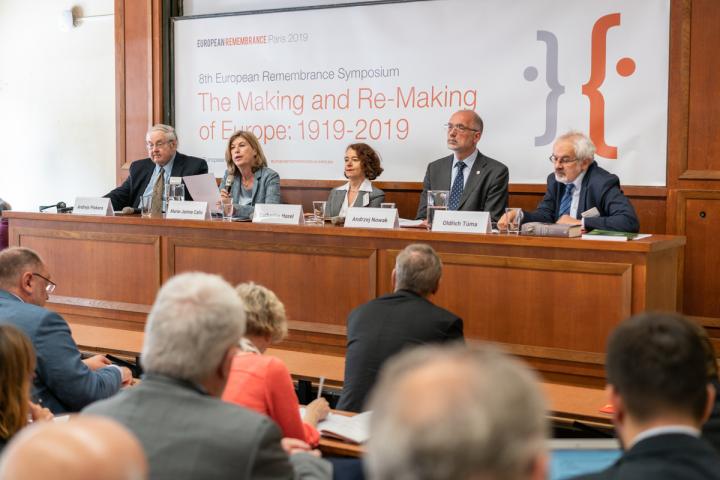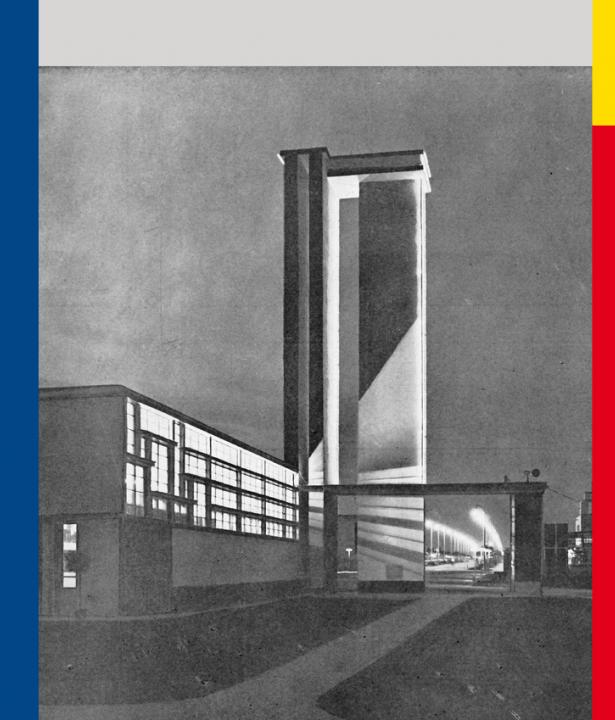The European Network Remembrance and Solidarity (ENRS) is an international initiative whose aim is to research, document and disseminate knowledge about Europe’s 20th-century history and ways in which it is commemorated. ENRS promotes dialogue about the European culture of remembrance with a special emphasis on periods of dictatorship, wars and resistance to political violence.

Participants of the student project "In Between". Marcin Oliva Soto / ENRS, Free access - no reuse
Participants of the student project "In Between". Marcin Oliva Soto / ENRS, Free access - no reuse

"After the Great War" exhibition in Vienna, May 2021. Rainer Mirau / ENRS, Free access - no reuse
"After the Great War" exhibition in Vienna, May 2021. Rainer Mirau / ENRS, Free access - no reuse

"European Remembrance Symposium" in Paris, June 2019. Agnieszka Wanat / ENRS, Free access - no reuse
"European Remembrance Symposium" in Paris, June 2019. Agnieszka Wanat / ENRS, Free access - no reuse
Text
The European Network Remembrance and Solidarity was established in 2005 through a declaration of intent signed by the Ministers of Culture of Poland, Germany, Hungary and Slovakia. Romania joined in 2014, while Albania, Austria the Czech Republic, Estonia, Georgia, Latvia and Lithuania serve as observer member countries.
In an international context, joint remembering is only possible through “solidarity" understood as objectivity, openness and mutual respect accepted by all those involved in the remembrance process. It needs to take into account different national sensitivities, experiences and local narratives, with special attention given to the language of historical debates. The name "European Network Remembrance and Solidarity" corresponds to the subject matter, the forms of work and a certain basic ethical attitude.
The aim of the Network, in contrast to national educational and research institutions, is therefore to look for platforms of dialogue, link the already existing initiatives in individual countries, as well as to foster cooperation between public, governmental and non-governmental organizations (NGOs), research institutions and memorial sites dealing with 20th-century European history. As a forum for international discourse, the network aims to contribute to the European culture of remembrance characterized by dialogue and mutual understanding.
The Network’s Steering Committee consists of one representative from each member country. The Federal Republic of Germany is represented by the director of the Federal Institute for Culture and History of the Germans in Eastern Europe (BKGE). The operational work of ENRS is managed by a Warsaw-based Secretariat, which is institutionalized as the Institute of the European Network Remembrance and Solidarity (since 2015) and Foundation European Network Remembrance and Solidarity (since 2005) in Poland. Other advisory bodies to ENRS – the Advisory Board and the Academic Council – include scholars and experts from both the member countries, as well as from observer countries interested in becoming members of the Network: Albania, Austria, the Czech Republic, Estonia, Georgia, Latvia and Lithuania. The working language of ENRS is English.
ENRS carries out its mission of supporting international discourse about 20th-century European history by focusing on:
- Research
Example: Genealogies of Memory – annual interdisciplinary conference for young researchers, organized in cooperation with the University of Warsaw. Post-conference publication series Remembrance and Solidarity Studies in 20th-Century European History was created, followed by the series European Remembrance and Solidarity. - Education and outreach
Example: After the Great War. A New Europe 1918-1923 – an outdoor, traveling multimedia exhibition on tour through Europe. It highlights the differences in historical experiences and the importance of the interwar period in the cultural memory of the societies of Central and Eastern Europe. - Networking
Example: European Remembrance Symposium – an annual forum for exchange among scholars and actors in memorial, museum and remembrance cultural project work. The symposium is organized in different European capitals in cooperation with local partners.
Further information on ENRS projects is available at www.enrs.eu.
Externe Links
External Image

External Image









